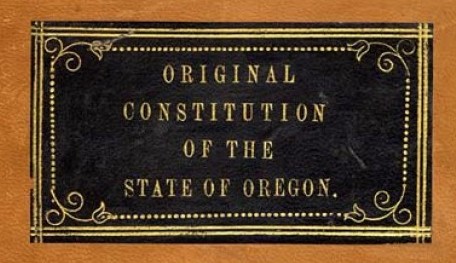If agencies don’t hire, they get to keep the money
 Editor’s note: This is the tenth in a multi-part series on the budget for the State of Oregon and where possible efficiencies can be found.
Editor’s note: This is the tenth in a multi-part series on the budget for the State of Oregon and where possible efficiencies can be found.
The Legislative Fiscal Office estimates that “[a]t any given time, roughly 10% to 15% of
authorized state positions are vacant. For example, as of August 10, 2016, a total of 4,812 state positions were vacant, representing 12% of all positions.â€
Surprisingly, the current practice of the State is to fund vacant positions, leaving the money with the agency, even if the position is not filled -- a practice that many consider to be unconstitutional.
Article III, Section 2 of the Oregon Constitution gives the Legislature all spending authority. It says, “The Legislative Assembly shall have power to establish an agency to exercise budgetary control over all executive and administrative state officers, departments, boards, commissions and agencies of the State Government.â€
With some constitutionally required exceptions, the budget process is a negotiation between the executive and legislative branches over establishing and funding priorities in spending. Some things have to be funded, because they are constitutionally required. For instance, the state has to have to have elections. But, we don’t have to have a prison system. We could just let all convicted criminals go. But we want to have prisons, so the Legislature allocates some money to the executive branch to build, staff and operate a prison system.
Most often, the Legislature gives the Executive branch -- in this case, the Department of Corrections -- broad discretion on how to run the prisons, but they only have discretion to operate a prison. Any other use of the money is unconstitutional. During the budget process the Legislature, in consultation with the Executive Branch, determined that they needed a certain level of personnel. If they fail to hire all the personnel available to them, they either find efficiencies or fall short of goals, but at the end of the day, they don't have the constitutional authority to re-allocate the resources.
Although agencies have grown accustomed to and dependent upon having this 10% to 15% buffer -- one might call it a slush fund -- some basic discipline could be imposed on agencies, and much of this money could be returned to the general fund to be properly, constitutionally allocated by the Legislature, or in harder time, cut from the budget altogether.
Savings: $500,000 million ore more biennially.
--Staff Reports| Post Date: 2020-07-24 08:00:00 | Last Update: 2020-07-06 22:37:54 |







 Editor’s note: This is the tenth in a multi-part series on the budget for the State of Oregon and where possible efficiencies can be found.
Editor’s note: This is the tenth in a multi-part series on the budget for the State of Oregon and where possible efficiencies can be found.